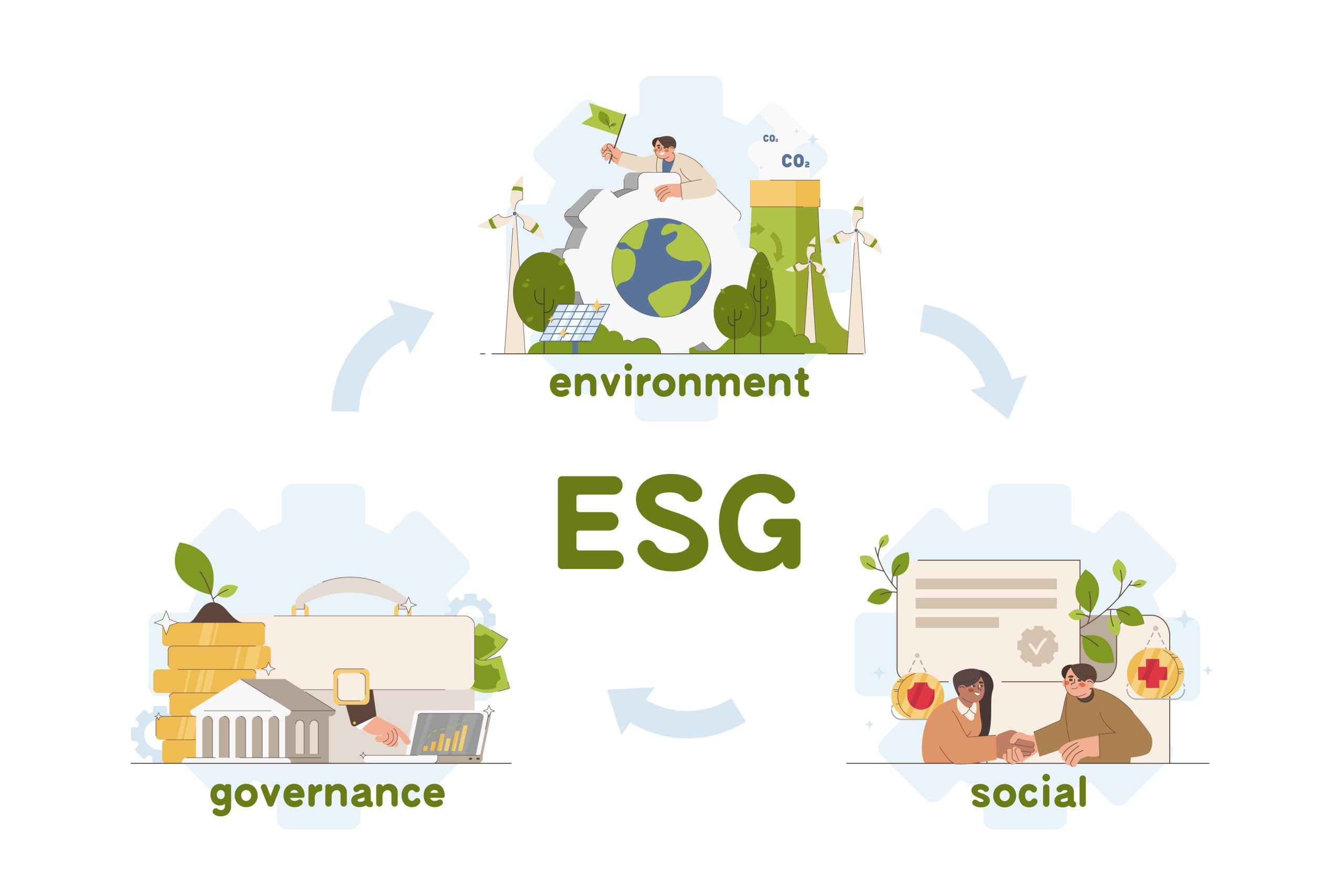In today’s fast-paced business environment, embracing Environmental, Social and Governance (ESG) factors is more than a trend; it is a requirement for long-term success. Let’s look at what ESG is and how it influences business success.
Defining ESG
Environmental, social, and governance is a set of criteria that assesses a company’s commitment to sustainable and ethical practices. Environmental factors assess a company’s impact on the environment, such as its carbon footprint, resource consumption, and waste management. Social factors assess a company’s relationships with its employees, communities, and the larger society, including issues such as diversity, labor practices, and philanthropy. Governance examines the framework of corporate decision-making, including topics such as transparency, accountability, and board diversity.

The Impact of ESG on Business Success
Integrating ESG principles is more than just a corporate responsibility issue; it is a strategic imperative for long-term success. Companies that prioritize (Environmental, social, and governance) outperform their peers financially, attract top talent, and have higher customer loyalty. Furthermore, they reduce the risks associated with regulatory changes, reputational damage, and supply chain disruptions.
Financial Performance
Research consistently indicates that companies with strong ESG practices outperform their peers in terms of financial performance. Investors growing acknowledge the value of sustainable businesses, resulting in higher market valuations and lower capital costs. Companies that prioritize Environmental, social, and governance unlock opportunities for innovation, efficiency gains, and increased resilience in the face of economic volatility.
Reputation and Brand Equity in ESG
ESG-conscious consumers and stakeholders prefer to associate with brands that share their values. Companies’ reputations and brand equity are enhanced when they demonstrate a commitment to environmental stewardship, social responsibility, and ethical governance. This not only increases customer loyalty, but also attracts socially conscious . Also it gains partners and financiers, resulting in a virtuous cycle of development and goodwill.

Risk Management
ESG considerations play an important role in identifying and mitigating risks to business consistency. Active handling of environmental risks, such as climate change impacts or pollution liabilities, protects against regulatory fines and operational disruptions. Similarly, prioritizing social factors such as labor rights and community engagement reduces reputational risks. By increasing resilience in the face of changing societal expectations.
Integrating ESG Principles
Embracing ESG is not a one-size-fits-all endeavor; it necessitates a comprehensive approach specific to each company’s unique setting and participants. Here are some strategies for successfully incorporating ESG principles into business operations:
╰┈➤ ESG initiatives must begin at the top, with strong leadership dedication and responsibility for driving meaningful change throughout the organization.
╰┈➤ Stakeholder Engagement: Communicate with stakeholders such as investors, employees, customers, and communities to better understand their environmental, social and governance goals and incorporate opinions into the decisions they make.
╰┈➤ Data-driven insights: Use robust data analytics and reporting frameworks to analyze, track, and discuss environmental, social and governance performance in a transparent manner, fostering accountability and trust.
╰┈➤ Continuous Improvement: Environmental, social and governance is an ongoing process that necessitates continuous evaluation, adaptation, and improvement in order to proactively address coming risks and opportunities.
╰┈➤ Collaboration and Partnerships: Work with industry peers, NGOs, governments, and other stakeholders to address systemic environmental, social and governance challenges and accelerate industry improvements.
FAQs
🤔 What does ESG stand for?
The acronym ESG stands for Environmental, Social and Governance. It represents a set of criteria for assessing a company’s ethical and sustainable practices.
🤔 Why are ESG factors important to businesses?
ESG factors are important for businesses because they help to ensure long-term sustainability, financial success, risk management, and stakeholder trust. Prioritizing environmental, social and governance can help improve brand reputation, attract investors, and drive innovation.
🤔 How does ESG affect a company’s financial performance?
Companies with strong ESG practices frequently outperform their peers in terms of financial performance due to factors such as lower operational costs, improved brand reputation, access to capital, and greater resilience to market volatility.
🤔 What are some examples of environmental issues in ESG?
Environmental factors in environmental, socia, and governance include a company’s carbon footprint, energy efficiency, waste management practices, water consumption, pollution control efforts, and commitment to renewable energy.
🤔 What social factors are considered in ESG assessments?
Social factors include various aspects of a company’s interactions with its employees, communities, and the larger society. This includes diversity and inclusion policies, labor practices, community engagement initiatives, human rights considerations, and philanthropic endeavors.
🤔 How does governance influence ESG assessments?
Governance refers to the structures and processes that guide corporate decision-making and accountability. This includes board diversity, executive compensation transparency, anti-corruption safeguards, shareholder rights, and ethical business practices.
Conclusion
To summarize, ESG is more than just a checklist for businesses; it is a strategic essential for long-term resilience and success. Businesses that embrace environmental sustainability, social responsibility, and ethical governance can create new opportunities, reduce risks, and increase stakeholder trust and loyalty. As the global business environment evolves, incorporating environmental, social, and governance (ESG) principles is not only the right thing to do, but also the smart thing to do.








